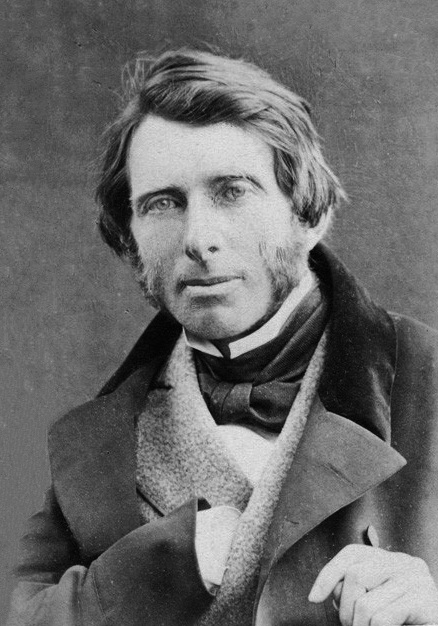Biography
John Ruskin (1819–1900)
English author and art critic, born in London. Son of a wealthy wine merchant, he was brought up in a cultured and religious family, but his mother’s over protectiveness undoubtedly contributed to his later psychological troubles. On his frequent trips in Europe, he took an artist’s and a poet’s delight both in landscape and in works of art, especially medieval and Renaissance.
His first great work, Modern Painters (5 volumes, 1843–60), began as a passionate defence of Turner’s pictures, but became a study of the principles of art. In The Seven Lamps of Architecture (1849) and The Stones of Venice (1851) he similarly treated the fundamentals of architecture. These principles enabled him, incidentally, to appreciate and defend the Pre-Raphaelites, then the target of violent abuse. To Ruskin the relationship between art, morality and social justice was of paramount importance and he increasingly became preoccupied with social reform.
His concern inspired, among others, William Morris and Arnold Toynbee. He founded the Working Men’s College (1854) and backed with money the experiments of Octavia Hill in the management of house property. He advocated social reforms which later were adopted by all political parties: old age pensions, universal free education, better housing. Nevertheless, he described himself as a ‘violent Tory of the old school, of Walter Scott – and Homer’, working with Thomas *Carlyle to defend Edward John Eyre against prosecution for murder after his violent suppression of a rebellion in Jamaica (1865).
Gothic was for Ruskin the expression of an integrated and spiritual civilisation; classicism represented paganism and corruption; the use of cast iron, and the increasing importance of function in architecture and engineering seemed to him a lamentable trend. He was Slade professor of art at Oxford 1870–79 and 1883–84. His later works, e.g. Sesame and Lilies (1865), The Crown of Wild Olives (1866) and Fors Clavigera (1871–84), contain the program of social reform in which he was so interested.
Ruskin married (1848) Euphemia (Effie) Gray (the child for whom he had written The King of the Golden River) but in 1854, after six years of non-consummation, the marriage was annulled and Effie later married the painter John Millais. Ruskin did not remarry, although on other occasions he fell in love with girls much younger than himself.
His last disappointment over Rose la Touche contributed to a mental breakdown and his last years were spent in seclusion at Brantwood on Lake Coniston, where he wrote Praeterita, an unfinished account of his early life. Much of his wealth he devoted to the ‘Guild of St George’, which he founded, and other schemes of social welfare. Ruskin had (despite his sometimes violent views) profound influence on *Gandhi and *Proust.






